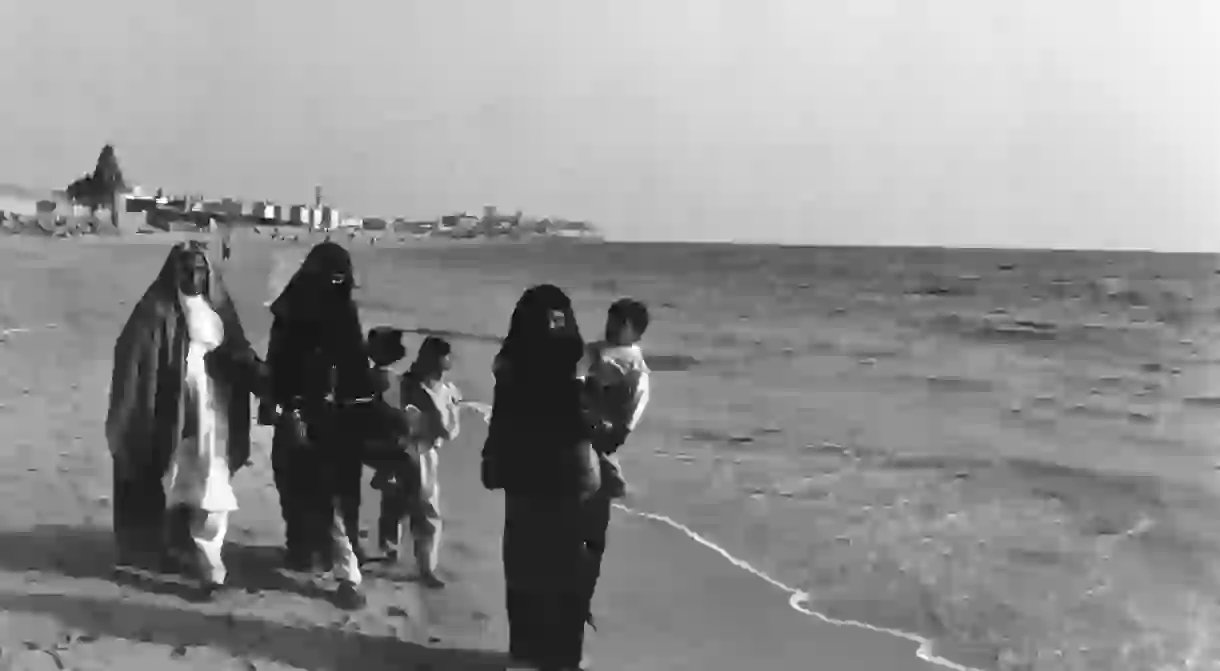Memories of Manora: Artist Naiza Khan Represents Pakistan at the Venice Biennale

Inspired by 12 years of travel to the Karachi peninsula, artist Naiza Khan puts Manora on the map in her most recent body of work, exploring ideas of space and shared experiences for the first Pakistan pavilion at the Venice Biennale.
This story appears in the third edition of Culture Trip magazine: the Gender and Identity issue.
From May to November every other year, La Biennale di Venezia sees the parks of the Giardini, the majestic Arsenale buildings and most of Venice’s palazzos and grand, centuries-old houses host transient contemporary art exhibitions from around the world. This year, for the first time, Pakistan presents a pavilion.
For the 58th iteration of the festival, 89 nations arrived in the city to mount their displays. Each participating country chooses one artist or group of creatives to represent their nation in a pavilion, and Pakistan’s entry is the work of multimedia artist Naiza Khan.

Khan’s exhibition for the Biennale is inspired by her visits to Manora, a peninsula (although it’s more fondly known as an island) close to the bustling port of Karachi. Taking on the role of translator and mediator, Khan has plumbed the peninsula’s topography, hidden histories and social relationships to create an “archive of lived experiences”.
Initially, Khan felt compelled to leave behind Karachi, Pakistan’s largest city, not because she knew she would create a project based on Manora, but because the city was too restless for her to work in. “It’s 21 million people, very fertile, very exciting,” she says. “But to be inside it and to be a creative practitioner is very difficult because you can’t get distance, and you can’t make sense of what is going on… I found it emotionally intense, physically difficult.”

For over a decade, Khan has repeatedly returned to Manora on journeys that have given rise to this sprawling collection of work: “an accumulation of material through observation around a place”. Khan used this archive as a point of meditation and departure for a vast conceptual body of art. Over time, Manora became a place where Khan could find the space to build her practice, which previously had focussed on the body, female identity and sexuality. “I took the boat, sat in this little café by the sea next to the Hindu temple and just wrote. I would write or I would draw. And I would maybe go with a friend, and we would chat about things,” she explains. Gradually, she became familiar with the locals, their stories and the place itself – the beach, its vendors, local artists. “We’d talk to the lady who runs the café. We would go to the Hindu temple to chat to the guy, ask him what’s going on, who is fixing the temple.”

But as her familiarity with the peninsula grew, her practice began to shift, yielding, for the Biennale, an immersive, multi-disciplinary world, titled Manora Field Notes, including brass sculptures (casts of historical maps of the area selected from a 1939 weather report), watercolours, found objects and a video installation that takes the viewer on a personal and poetic journey across Manora’s shores.
Each of the objects shown by Khan resonates with the patchwork nature of the communities on the ‘island’ and the spaces they inhabit. Her watercolours create a sense of removal from the subject, layering the island’s landscapes to evoke the passing of time, while the sculptures distil the weight of the area’s history; the maritime nature of the peninsula is illuminated in the films that capture the local culture.

In Khan’s personal archive, Manora becomes a point of departure for critical thinking about the intertwining of personal and universal experience – a symbol for the richness, wreckage and beauty of human life and history.

The Pakistan pavilion is curated by Zahra Khan and presented by Foundation Art Divvy.
This story appears in the third edition of Culture Trip magazine: the Gender and Identity issue. It will launch on 4 July with distribution at Tube and train stations in London; it will also be made available in airports, hotels, cafés and cultural hubs in London and other major UK cities.













